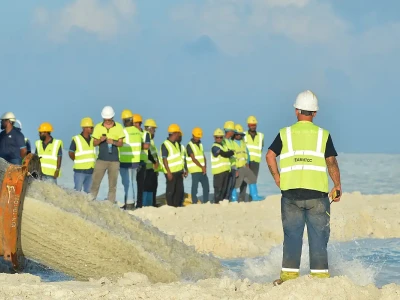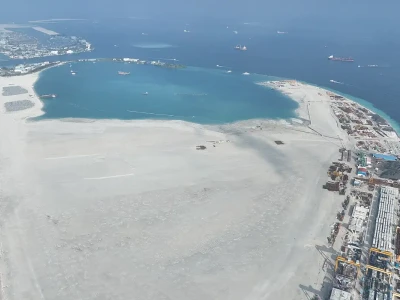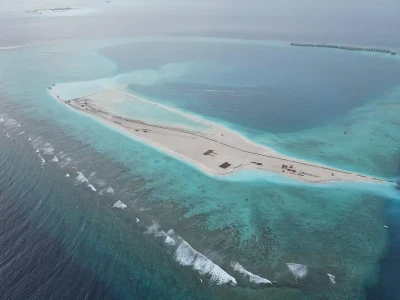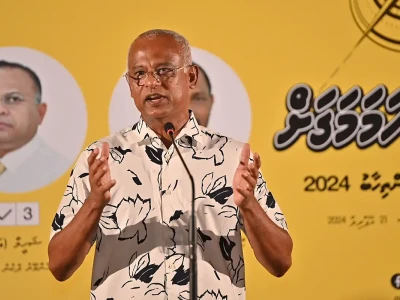
Development requires land reclamation; will reduce damage: Minister Thorig
“I think if development and environment are treated very equally, the damage will be reduced and development can be carried out".
Top Stories
Environment Minister Thorig Ibrahim has said that land needs to be acquired for the development of the Maldives, but efforts will be made to reduce the damage caused to the environment while carrying out such projects.
The minister said this in an exclusive interview with Atoll Times, while highlighting the government's intention to act in the face of climate change, which is causing serious damage to the environment due to major projects like land reclamation.
"Maldives is 99% sea. Only 1% of the land is available. So when Maldives is developing, we will need land to do what we need to do in Maldives. Housing and other industrial activities," Thorig said.
"So when we have such a small percentage of land, what we have to do is dredging and reclamation”.
Therefore, the government has already started work on the Fushidhiggaru lagoon Project to address the housing shortage in the Male area. The minister described the project as a necessary one.
“Then some people will say, isn't it enough? The already dredged land [in Gulhi and Giraavau lagoons],” he said, referring to the dredging sites started by the previous government to give land to the people of Male.
"But that area is already sliced up. Who would go to a place that is already cut up and diced? That's what is happening in Male now. Should we go back to it again?" he asked the question.
In order to populate a place, schools, parks and other infrastructure development must also be brought in, he said, adding that space would be needed to do so. He also noted that the land is being reclaimed higher than other islands to avoid the damage caused by climate change.
"I believe that it will affect the environment. But what is most important is to reduce the damage. We have to provide people with a place to liv”, Thorig, who was also the Environment Minister in former President Abdullah Yameen's government, said.
The minister assured that the government will try to minimize the damage to the environment while carrying out such projects.
Thorig added:
-
After the EIA is conducted, compliance with the recommendations included in the EIA should be recognized and prioritized by both the government and the working parties
-
Work should be properly monitored and environmentally harmful practices should be warned and stopped if necessary
-
If monitored properly, the damage will be identified and the necessary remedies will be known
“I think if development and environment are treated very equally, the damage will be reduced and development can be carried out,” he said.
Thorig believes that a balance must be found. Without development, he said, we cannot live as we did in the past.
"For example, if we still have to transport ourselves around in sailboats, we will have no development. But when the engine boat came, it emits toxic gases. So, what can we do?" The minister questioned.
Replying to the question, the minister said the next step is to make engines more efficient and reduce their emissions. Otherwise, in the future, new technology will be combined with solar or renewable energy.
"One of our goals is to use new technology to reduce the damage to our environment in large projects like this. Avoid it if we can," he said.




